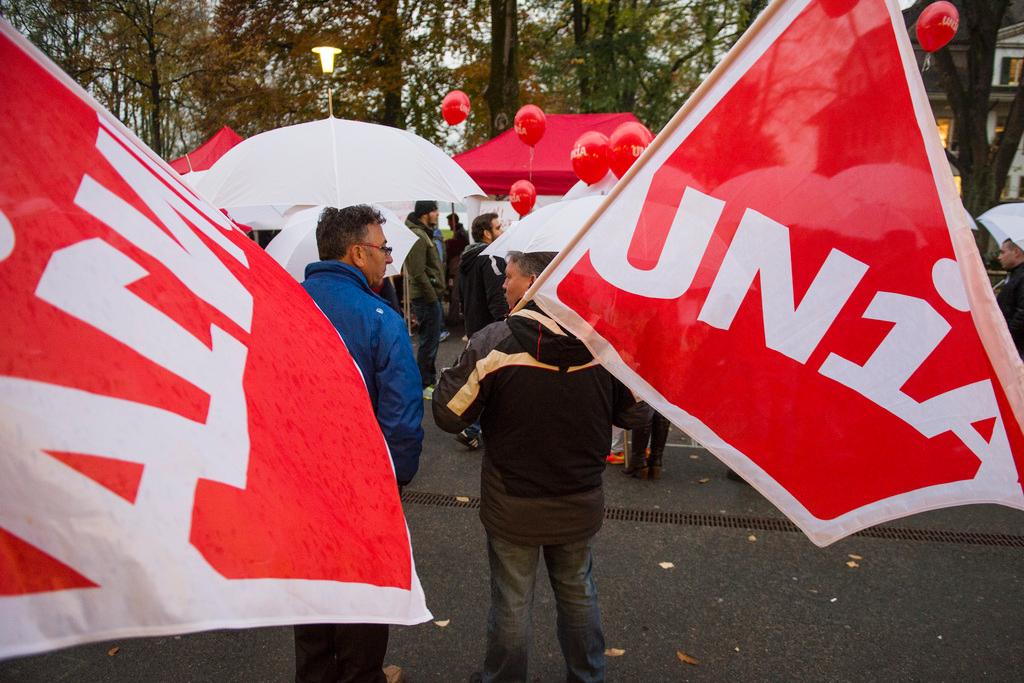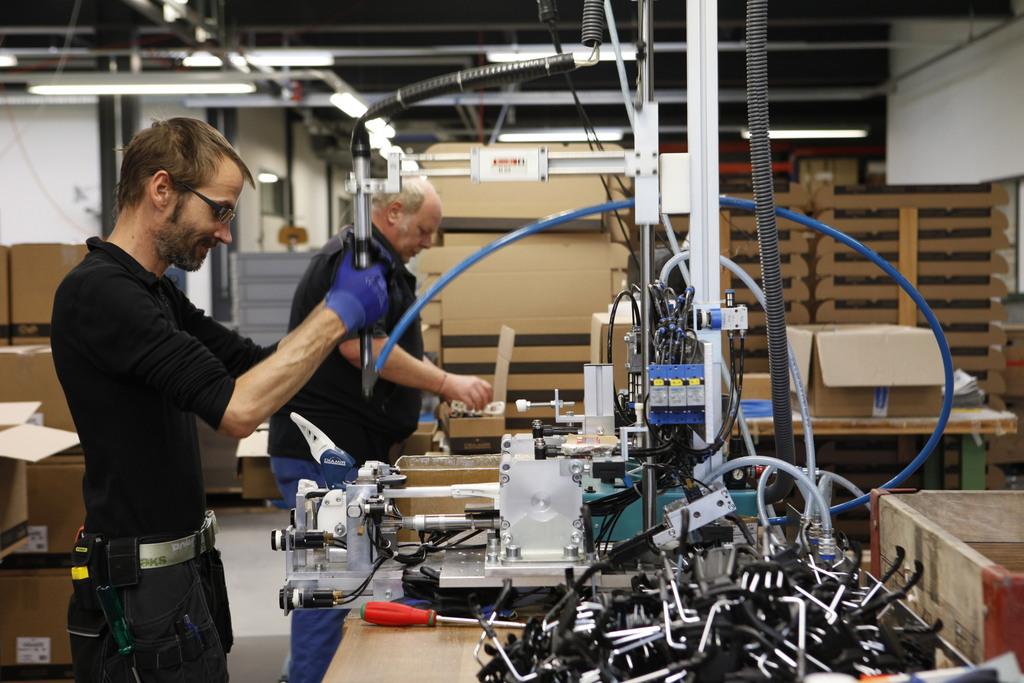Industrial exporters go back to the drawing board

Sales, orders and profits from Swiss machine-making, electronic-engineering and metal goods exporters slumped at the end of 2014 – even before the Swiss National Bank (SNB) abandoned its defence of the franc.
Since January 15 – when the SNB made its surprise decision – the situation has turned even bleaker. “We are now bound to lose money on some ongoing euro orders that were placed months ago,” Patrick Haegeli, director of Willemin-Macodel, told swissinfo.ch.
When eurozone customers cough up for deliveries, the payments will be worth around 20% less than when the orders were placed. That is a consequence of the SNB’s announcement last month which sent the franc soaring against the euro.
Like many Swiss export companies, the manufacturer of precision machine parts, which is headquartered in Delémont, canton Jura, is no stranger to dealing with the appreciating franc. It spent four years (2011-2014) cutting costs, improving efficiency and driving innovation to counter the effects of the franc-euro exchange rate that moved from CHF1.65 to CHF1.20.
Since January 15, a single euro has bought roughly CHF1.05. For Haegeli, it is time to go back to the drawing board to retain competitiveness in the international markets.
“We put in all that effort and now we have to start again,” he told swissinfo.ch. “It is easier to find the initial 20% of cost savings than to eke out an additional 2%.”
He cited renegotiating prices with suppliers, investing in new infrastructure as possible answers, along with possible changes in working hours for his workforce.
“Fortunately, our employees understand the situation and want to work with the company to keep us strong,” he said.
Strong start, weak finish
At the start of 2014, business conditions were looking up: the woes of the eurozone appeared under control and the United States economy began to stage a sustainable economic rally.
But the crisis in Ukraine that pitted Russia against the West, allied with a weakening of growth in developing economies and finally renewed problems with Greece, soured the picture in the second half of last year.
Swissmem’s members reported orders falling off by 1.4% in the last three months of 2014 while income dropped 4.2% and 2.4% in the last two quarters respectively. The Swissmem survey, published on Wednesday, also showed exports stagnating in the European Union and sliding rapidly in India (-4.7%), Russia (-15.8%) and Brazil (-16.4%) last year.
The situation was propped up somewhat by increased business activity in the US and stable conditions in China. But the overall outlook appears depressed, particularly for the electronic engineering sector.
Currency consequences
Swissmem president Hans Hess summed up the pressures by inventing a fictitious company with CHF10 million in sales with a typical profit margin of 5%. The SNB’s franc U-turn could knock CHF1.5 million off the firm’s sales this year and transform its CHF500,000 profit into a CHF1 million loss.
“This shows the brutal reality that many companies, especially small and medium-sized enterprises (SMEs), are faced with,” Hess said.
Swiss SME Paro, which manufactures assembly line production machines from its base in Subingen, canton Solothurn, presented another reality check in the post-SNB exchange rate intervention world.
Chief executive Martin Frauenfelder said the firm is faced with direct exchange rate losses of CHF120,000, enforced price cuts totalling CHF70,000 and, most damagingly, a loss of orders that could reach CHF1.8 million.
STS Systemtechnik Schänis, a St Gallen-based specialist in locks and fastenings, has been forced to revise its 2015 budget after the SNB’s decision. Company boss Markus Spoerri estimates that it may cost 10% of profits unless sacrifices are made.
“We anticipated that the SNB would abandon its minimum exchange rate of CHF1.20 to the euro,” Spoerri told swissinfo.ch. “But we were hoping that it would manage the exit so that the euro would fall to around CHF1.15. We did not expect that on January 15 the exchange rate would reach parity – that has put a lot of pressure on companies.”
Demands on government
Swissmem once again called on the government to help ease the situation with business friendly policy decisions.
Top of the wish list was a resolution to the current dispute with the EU that was sparked by last year’s initiative against mass immigration, involving quotas on EU citizens in Switzerland. Swissmem also wants a greater array of free trade agreements, particularly with the US.
The lobby group also called on the trade union movement to show greater understanding for the need of companies to change employees’ working hours. But Hess advised against paying cross-border workers in euros in case they run into legal problems.
The final two demands were for an increase in government spending on innovation projects and to put an end to new regulations and red tape being initiated from parliament.
(with input from Armando Mombelli)

In compliance with the JTI standards
More: SWI swissinfo.ch certified by the Journalism Trust Initiative











You can find an overview of ongoing debates with our journalists here . Please join us!
If you want to start a conversation about a topic raised in this article or want to report factual errors, email us at english@swissinfo.ch.